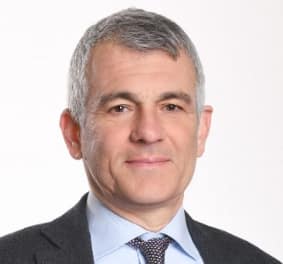Sessions With Luca Cosentino
Wednesday, 11 March
-
07:30am - 08:40am (CST) / -
Cleantech Investment Strategies of Oil & Gas Companies
Climate & Sustainability Clean TechThe O&G industry is embracing clean technology more than ever and traditional energy companies have moved past initial skepticism of renewable energy sources and sustainability initiatives to become increasingly bigger players in the energy transition. Every year the volume of investing and partnering in diverse cleantech areas, including renewables, batteries, hydrogen, water treatment, or EV charging, continues to grow. This growth of new technologies and investment opportunities requires the development and implementation of a clear strategy for cleantech investments that finds the right balance between sustainability goals and corporate returns. What is the strategic approach by oil and gas companies in cleantech? What is the right level of investment to become a cleantech leader without negatively impacting overall company returns?
- Speakers:
- Edurne Zoco
- Barbara Burger
- Nasir Hj Darman
- Luca Cosentino
- Jim Sledzik

